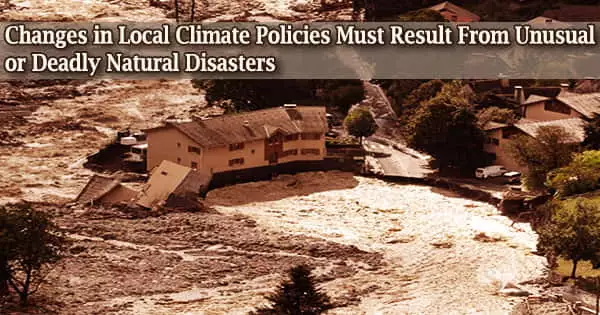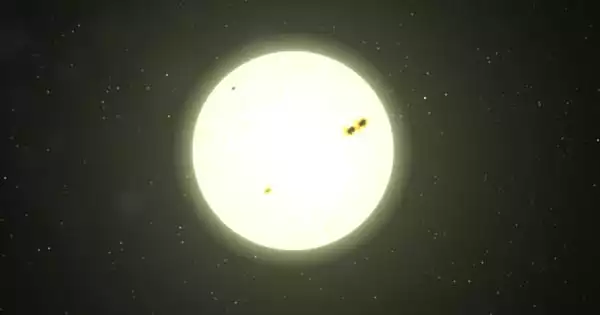According to a recent study from Oregon State University, local populations are not sufficiently motivated to engage in climate change mitigation or adaptation by natural disasters alone.
Instead, a variety of factors, including mortality, extensive media coverage, the unusualness of the event, and the political make-up of the community, seem to influence how policies are changed in reaction to extreme weather events.
According to climate experts, extreme weather events will become more frequent and more severe during the ensuing decades. OSU researchers wanted to know how the surrounding community were responding.
“There’s obviously national and state-level climate change policy, but we’re really interested in what goes on at the local level to adapt to these changes,” said lead author Leanne Giordono, a post-doctoral researcher in OSU’s College of Public Health and Human Sciences.
“Local communities are typically the first to respond to extreme events and disasters. How are they making themselves more resilient for example, how are they adapting to more frequent flooding or intense heat?”
Giordono and co-authors Hilary Boudet of OSU’s College of Liberal Arts and Alexander Gard-Murray of Harvard University looked at 15 extreme weather events that took place across the United States between March 2012 and June 2017 as well as any subsequent local climate policy changes for the study, which was funded by the National Science Foundation.
These occurrences included a landslide, flooding, severe heat, winter weather, tornadoes, and wildfires.
There are two “recipes” for changing municipal policy following a catastrophic weather event, according to a study that was just published in the journal Policy Sciences.
As opposed to being driven by ideology or a shift in thought process, it’s more a means to an end. We don’t want anyone else to die from tornadoes, so we build a shelter. It’s not typically a systemic response to global climate change.
Leanne Giordono
“For both recipes, experiencing a high-impact event one with many deaths or a presidential disaster declaration is a necessary condition for future-oriented policy adoption,” Giordono said.
In addition to a high death toll, the first recipe consisted of Democrat-leaning communities where there was focused media coverage of the weather event. These communities moved forward with adopting policies aimed at adapting in response to future climate change, such as building emergency preparedness and risk management capacity.
The second recipe consisted of Republican-leaning communities with past experiences of other uncommon weather events. In these locales, residents often didn’t engage directly in conversation about climate change but still worked on policies meant to prepare their communities for future disasters.
Both recipes called for reactionary policy measures like constructing levees, fire breaks, or local tornado shelters. These policy alterations were described as “instrumental” by Giordono.
“As opposed to being driven by ideology or a shift in thought process, it’s more a means to an end,” she said. “We don’t want anyone else to die from tornadoes, so we build a shelter. It’s not typically a systemic response to global climate change.”
Researchers found little indication of mitigation-focused policy responses in their sample, such as localities implementing regulations to control carbon emissions or mandate the use of solar energy. Additionally, some cities made no adjustments to their policies as a result of the catastrophic weather.
The researchers propose that it may be more successful to frame these policy dialogues in other ways, such as people’s loyalty to their community or the community’s long-term viability, in populations that are ideologically opposed to talking about climate change.
The researchers are unable to comment on the status of their policy change without particularly investigating towns that have not suffered extreme weather events, but Giordono indicated that this is a topic for further research.
“In some ways, it’s not surprising that you see communities that have these really devastating events responding to them,” Giordono said. “What about the vast majority of communities that don’t experience a high-impact event is there a way to also spark interest in those communities?”
“We don’t want people to have to experience these types of disasters to make changes.”
















